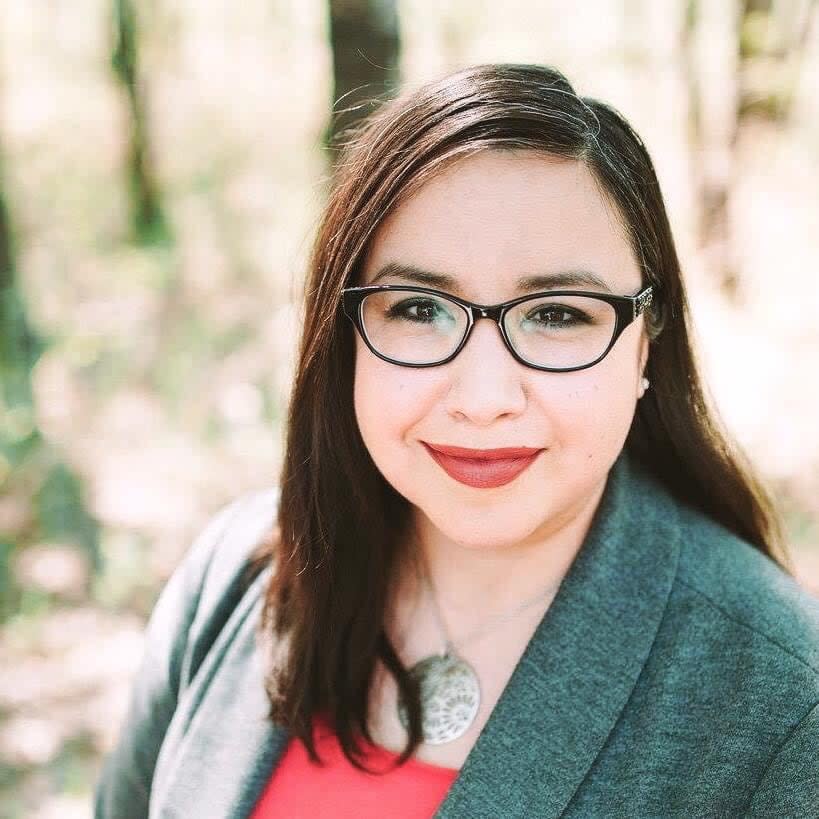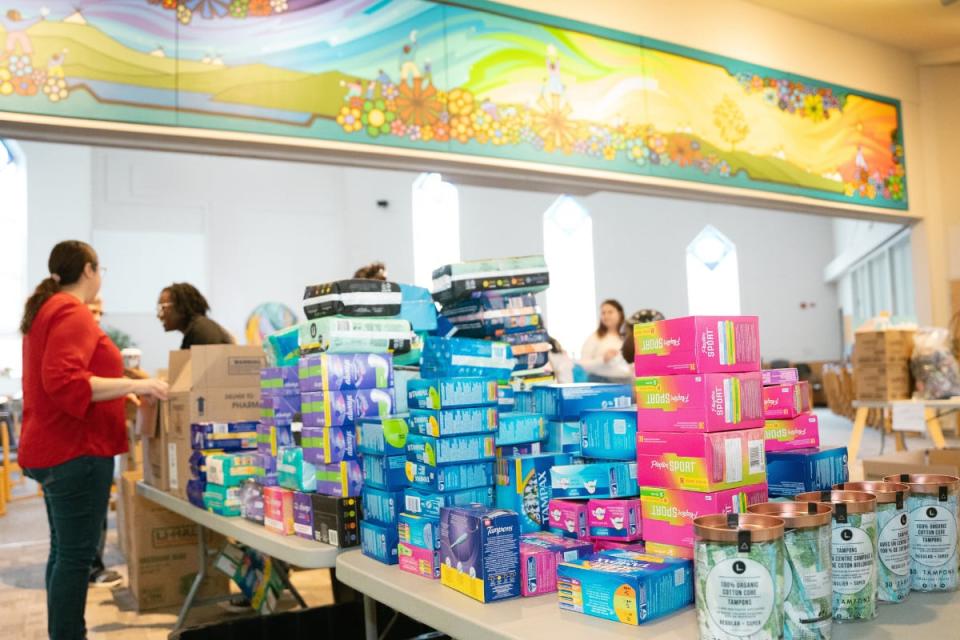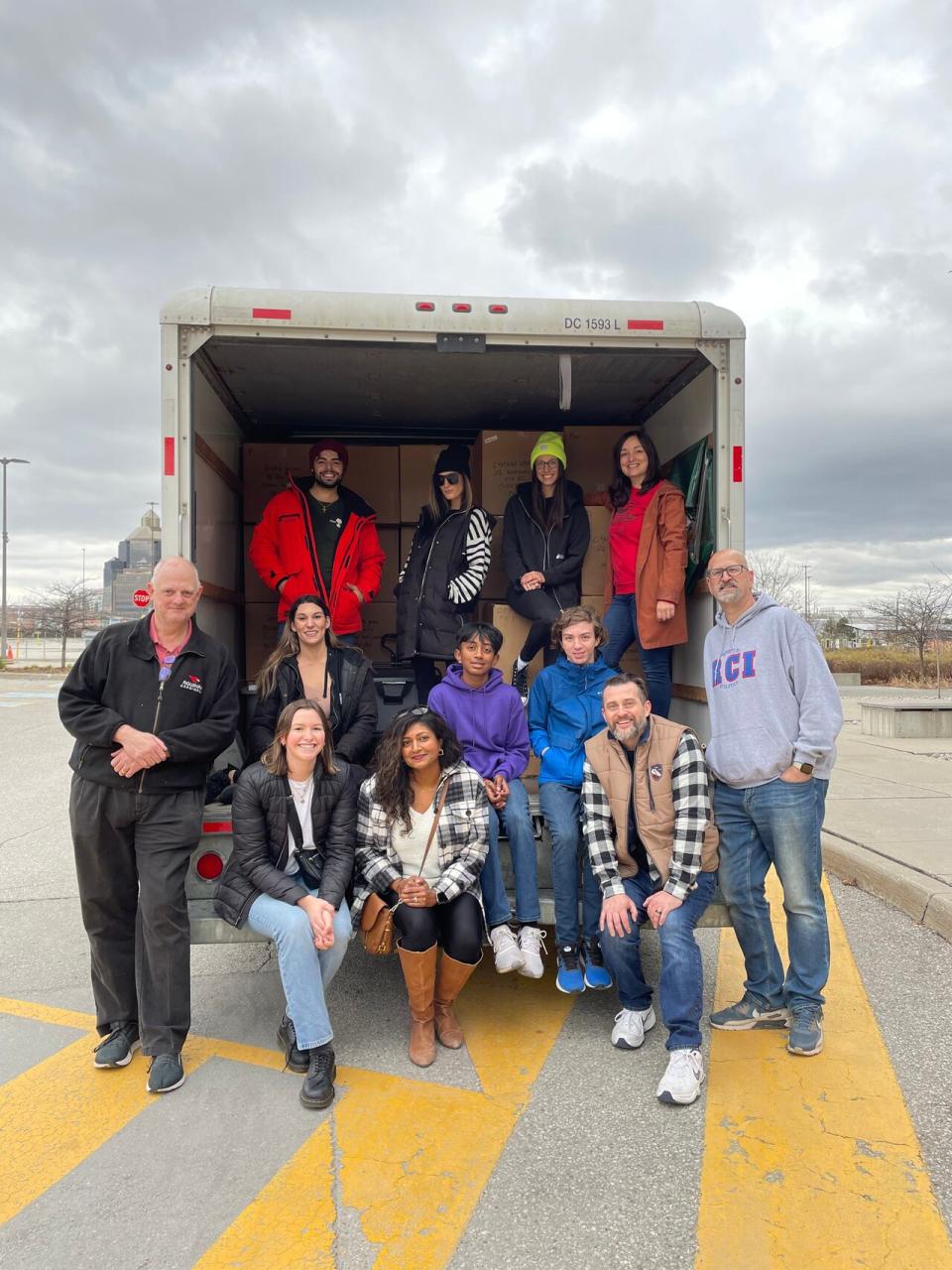Free period products headed to northern and remote communities

While one in five people say they may not be able to afford period products, according to a survey from Women and Gender Equality Canada, that number is even higher among Indigenous people living in remote and northern communities.
A survey from a national Indigenous-led period equity group found that 74 per cent of Indigenous reponsdents said they have trouble accessing period products.
"We should be making menstrual products as readily available as toilet paper," said Nicole White, founder of Moon Time Connections.
"It is absolutely a right that everyone should have access to."

Nicole White is the founder of Moon Time Connections. (Submitted by Nicole White)
White, who is Métis from Treaty 6 territory, said that's why she's so excited about new funding to help provide northern and remote communities with the menstrual products they want.
As part of the federal menstrual equity fund pilot project, Food Banks Canada will receive nearly $18 million to distribute free menstrual products to low-income people and provide awareness about period poverty. Moon Time Connections will receive $2.4 million of that funding to specifically reach remote and northern Indigenous communities.
This partnership will help reach Indigenous communities in the North, where there are unique barriers to access.

Moon Time Connections at a packing party, where menstrual products are being packaged for distribution to the North. (Submitted by Moon Time Connections )
The struggle to meet basic needs
In Wood Buffalo, Alta., about 420 kilometres north of Edmonton, demand for menstrual products at the local food bank varies and some clients aren't aware they're available, said Michelle Hand, communications and development manager at the Wood Buffalo Food Bank.
The food bank serves communities as far north as Fort Chipewyan, 600 kilometres north of Edmonton.
Hand said they have seen a significant increase in demand over the last year, rising from about 600 families a month to nearly 1,000.
"People are having a hard time supporting just their basic needs. Menstrual items are within that," she said.
While clients are able to request whatever items they need, Hand said people are often nervous and overwhelmed, especially on their first visits.
"It can be a very scary situation that they're coming into," Hand said.
"You're just coming in with so much doubt and depression and all of those things that all that information being thrown at you, it can be a lot."
To make access as easy as possible, Moon Time Connections allows individuals to make product requests through online forms.
The picture in Yukon
Heather Sweeney manages volunteers and community services at the Whitehorse Food Bank.
Previously, clients would have to ask for sanitary products, Sweeney said. For the past year, the lobby of the food bank has had a shelf dedicated to menstrual products. Clients are welcome to access the shelf whenever the lobby is open.
Sweeney also spoke to the lack of product options when they first began stocking the shelf.
"It's really important for our clients to be able to have a choice to pick the things they want," Sweeney said. "Anytime the lobby is open, people can take from it what they want."
The Council of Yukon First Nations (CYFN) has been working with all 14 Yukon First Nations to provide free products since late 2022.

People in front of a van packed with boxes of donated menstrual products to be shipped north. (Submitted by Moon Time Connections )
"We are excited to hear about this new initiative that could have period products be accessible by a lot more Yukon, First Nations and Yukoners who need this," said Shadelle Chambers, Executive Director of CYFN.
"We work with every single Yukon First Nation community and when they are low on products, we make the order and ensure it gets flown or freighted to the community," Chambers said.
Since working on supporting menstrual access in late 2022, CYFN has spent $1.2 million on providing menstrual products.
Moon Time Connections said it has received new requests from 90 communities in 2024 — more than double what the organization did in the previous two years.
Those numbers show a serious need to do more outreach with Indigenous populations in the North, which includes education on how to use products as well as cultural teachings around menstruation to help destigmatize it, White said.


